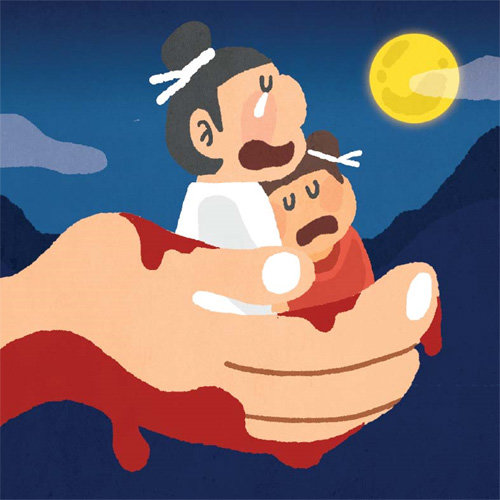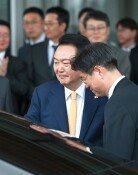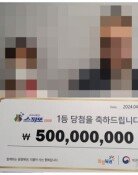Tears of Prince Sudana
Tears of Prince Sudana
Posted September. 11, 2019 07:35,
Updated September. 11, 2019 07:35

There was once a prince known for his generosity of giving away everything he owns. A Brahmin – a Hindu caste traditionally assigned to the priesthood – asked for the prince’s son and daughter as slaves, exploiting the prince’s generosity. The prince could not refuse this request and gave away his beloved children. The Brahmin took away the children in tears. The prince’s eyes also overflowed with tears as he looked at their children. A song titled "The Buddha's Moon Reflected on a Thousand Rivers,” written by Sejong the Great, the fourth king of the Joseon Dynasty, describes this scene as follows: “As the two children are given to the Brahmin, their eyes are filled with tears. The sound of their crying shakes the earth. As the Brahmin hits them, the prince is saddened. The earth that his tears fall on shakes as well.”
However, King Sejong’s song omitted some details as it summarized the original story, which describes the painful scene of the prince giving away his children in more details. According to the original version, as the children refused to go with the Brahmin, the Brahmin asked the prince to tie his children’s hands so that they could not escape. The prince did as he was told. Even so, the children refused to follow voluntarily and the Brahmin hit and dragged them. The prince cried looking at his children in pain and the earth, birds, and other animals all rolled on the ground cried along with him.
How committed could the prince be to give what he owned, going as far as to give away his own children? What is the message that the story is trying to deliver? It is sort of hyperbole to show how difficult it is to give something precious to oneself to others as seen in the deep sorrow of the prince that made even the earth, birds, and animals cry. It may be an example of absolute hospitality and an unconditional gift that French philosopher Jacques Derrida wrote about.
The prince’s name is Sudana, also commonly known as Vessantara. The scripture describing this story is called the Prince Sudana Sutra. It is said that Shakyamuni Buddha was Sudana in his previous life. King Sejong wrote the song about the ultimate generosity that shines the heaven and the earth as the moon does in the Korean alphabet, which he himself had recently developed, as Buddha told the story to his disciples. It was during the time that Buddhism was oppressed in the Joseon Dynasty.







